[VARIVAS] VEP SHOCK LEADER [Nylon] VA-12
Our Selling Price: US$8.63 [Regular Price: US$12.32]
Prices vary according to options.
Retail Price: US$15.40
Item Description
VEP SHOCK LEADER [Nylon]
Saltwater VEP is a line designed for saltwater games and is extremely resistant to friction from roots and structures.
Boasts approx. 20 times more wear resistance compared to our nylon line products.
Powerful and durable enough to endure friction from bridge piers, tetrapods, sharp teeth, and contacts with the fish.
In addition to the durability, the SP-F coating gives the line casting performances on par with the best.
- With the 20x higher wear resistance, roots and structures are a threat no more.
- Super fluorine coating (SP-F) smoothens the line. Casting distances will increase as a result and will drastically reduce line troubles as well.
- Parallel winding will prevent the line from deforming, assuring the same high quality throughout.
- Records made with this line are internationally recognized as the line conforms with the I.G.F.A. regulations.
*Comes with a Spool band dedicated to each size!
Color
Natural





Spec
| # | lb. | DIA. (mm) |
50m (Parallel Winding) |
| 3 | 12 | 0.285 | ● |
| 3.5 | 14 | 0.310 | ● |
| 4 | 16 | 0.330 | ● |
| 4.5 | 18 | 0.350 | ● |
| 5 | 20 | 0.370 | ● |
| 6 | 22 | 0.405 | ● |
| 7 | 25 | 0.435 | ● |
| 8 | 30 | 0.470 | ● |
| 10 | 35 | 0.520 | ● |
| 12 | 40 | 0.570 | ● |
| 14 | 50 | 0.620 | ● |
Basic knowledge of SHOCK LEADER
What is a SHOCK LEADER?
It is an indispensable item for modern fishing styles.
A SHOCK LEADER is a line attached to the tip of the main line to make the system (rig) perform at 100%.
It is sometimes called a "leader".
The name may vary, but it is a line that serves the same purpose as a leader line or a tippet. It is often used in combination with PE as the main line in modern fishing styles.
Role of the SHOCK LEADER.
It brings out the full potential of the PE line.
PE is sensitive because it has almost no stretch. However, this also causes a lot of hooking failures.
Also, it has the disadvantage of being weak against friction.
Therefore, a SHOCK LEADER must absorb the impact and complement the abrasion resistance.
PE, which does not transmit light, is very conspicuous in the water, so another purpose of the SHOCK LEADER is to camouflage it.
The balance between the SHOCK LEADER and the line.
Which one should be stronger, the main line or the SHOCK LEADER?
The SHOCK LEADER should be the same or weaker than the main line.
If the SHOCK LEADER is stronger than the main line, it will break where the lines meet, not when the rig is connected but when it gets snagged.
Therefore, check the pound display as well as the number display of the PE.
For example, if the PE is 1.5, it has a strength of about 20lb, so you want to choose a SHOCK LEADER that balances with this value.
Fluorocarbon or nylon?
Fluorocarbon for the bottom, nylon for the winding.
The advantages of using fluorocarbon as a SHOCK LEADER are that it sinks easily, has excellent sensitivity, and is resistant to abrasion such as root sliding. Therefore, it matches the style of searching at the bottom.
On the other hand, nylon is supple and has a moderate stretch, making it suitable for fishing that involves casting and winding.
How long should the SHOCK LEADER be?
Up to 2m at most.
It depends on the tackle balance and the point situation, so it is generally impossible to say.
However, 1-1.5m is the standard for shore lure fishing.
The shorter the SHOCK LEADER, the less trouble it causes, and you should remember to keep it up to 2m.
How often should the SHOCK LEADER be replaced?
The performance will deteriorate even if you don’t use it.
Nylon will degrade even if you don’t use it because it absorbs water and is exposed to light, so you should replace it frequently.
In the case of fluorocarbon, you should replace it immediately if the line has scratches.
What is the difference between the number display and the pound display?
The unit of thickness and the unit of strength.
The unit of line thickness is "#," and the standard for #1 is 0.165mm.
The strength unit is "lb." 1lb indicates the strength that breaks under a load of 0.453kg.
You won’t get lost when buying or fishing if you can handle both units.
Estimation formula
Remember, "2 x 4 = 8 pounds."
When considering the balance between the main line and the SHOCK LEADER, as mentioned earlier, you also need to be able to convert between the number display and the pound display instantly.
The rule of thumb is "number x 4 = approximate pound number".
For example, a #2 line is 8 pounds, and a #5 line is 20 pounds.
Also, if you exceed #10, you can get a more accurate pound number by multiplying by 3-3.5.
| # | 1 | 2 | 4 | 8 | 10 | 12 | 14 | 16 |
| lb. | 4 | 8 | 16 | 24 | 32 | 35 | 40 | 50 |
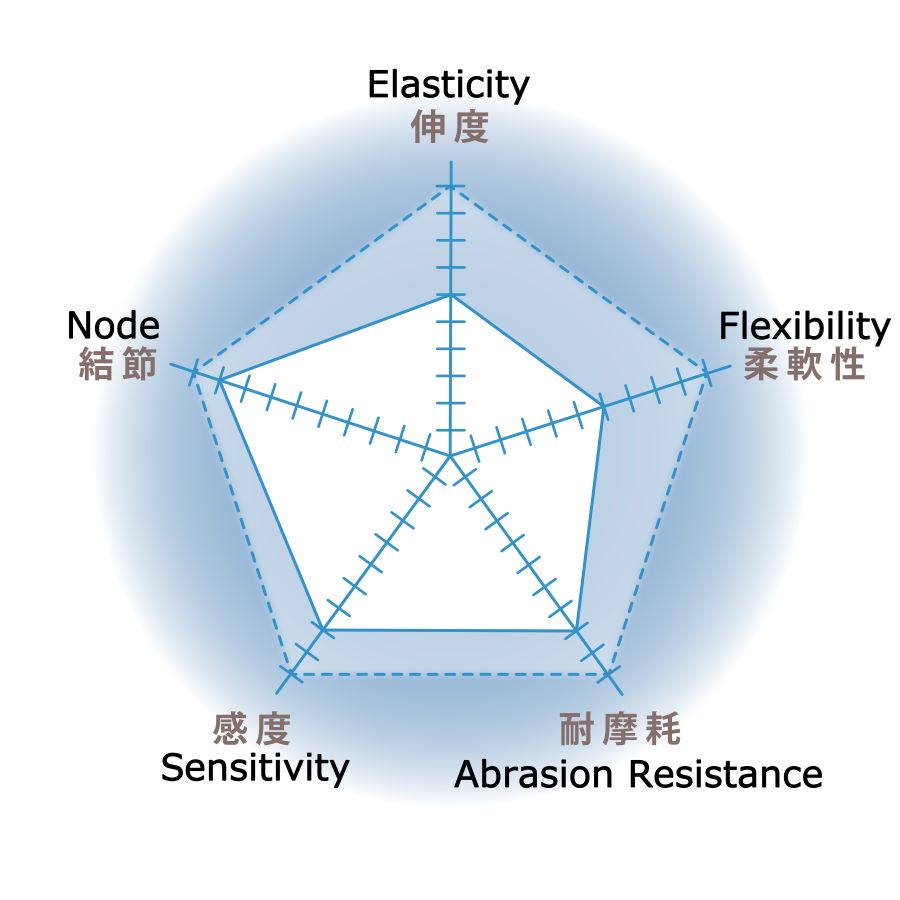
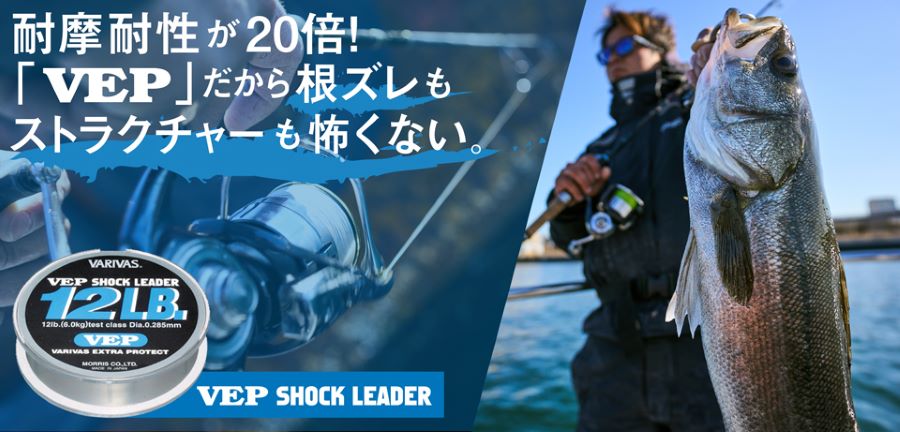
- Easy to use, abrasion-resistant SHOCK LEADER
VEP SHOCK LEADER is ideal for lure fishing that takes advantage of the moderate stretch of nylon.
As the name suggests, moderate elasticity absorbs the shock at hooking, preventing line breakage, hook stretching, fish mouth cutting, etc.
The material is made with a VEP process, which boasts super abrasion resistance of 20 times that of normal nylon.
VEP stands for Varivas Extra Protect.
It achieves the super basic of SHOCK LEADER, which is strong even though it is nylon, while maintaining the suppleness that does not interfere with the lure action at a high level.
Reliability is the priority factor in lure fishing, where you cast repeatedly.
Still, it is also important that the line is hard to break in important situations, easy to knot, and has cost performance.
In these three elements, the VEP SHOCK LEADER is a super long-selling item that anyone can use easily, from beginners to veterans.
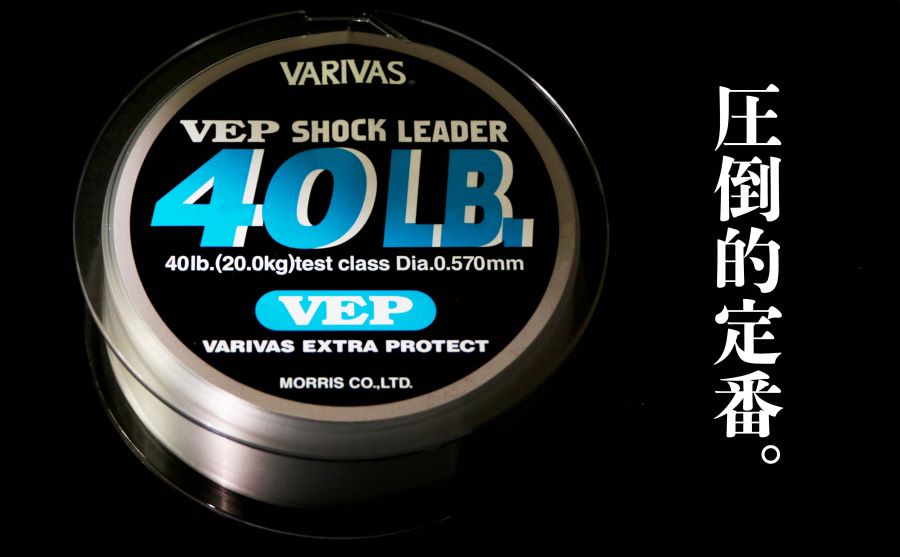
- Nylon leader is especially effective for surface fishing.
Nylon material has a specific gravity close to water, so it is suitable for fishing where you do not want to sink the lure.
Nylon SHOCK LEADER is often easier to fish with, especially for lures that are easily affected by the action and swimming posture, such as topwater plugs and minnows.
This is why there are many fans of VEP SHOCK LEADER in seabass fishing.
Also, in fishing, where you use light metal jigs, such as ultra-light jigging, there are situations where the suppleness of the SHOCK LEADER contributes to creating a natural action, so you should remember that. Be careful, as fluorocarbon leaders may cause a contradiction in the action of ultra-light metal jigs.
In addition, nylon SHOCK LEADER is also effective for catfish fishing using the PE line.
Since fishing at dusk or night is the main focus, the VEP SHOCK LEADER, supple, less troublesome, and excellent in abrasion resistance, should be a strong ally.
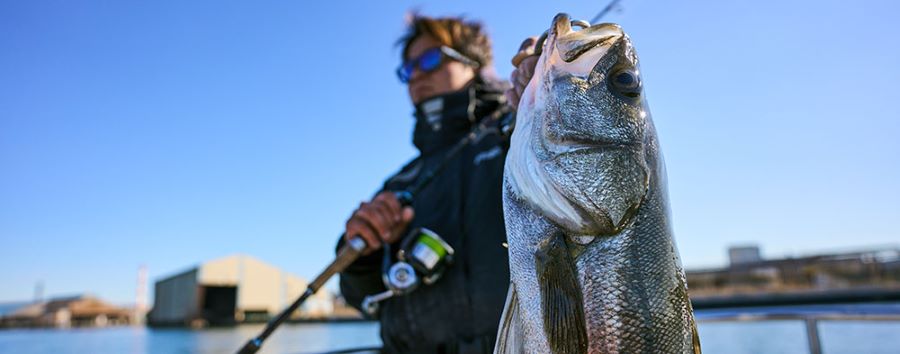
- Pay attention to the replacement time of the nylon leader.
VEP SHOCK LEADER has a "UV-CUT coating," which blocks ultraviolet rays with a special protective film on the line surface and reduces the degradation of the line.
In addition, a "non-stress coating" is applied to the surface to protect the line from many stresses such as water absorption, ultraviolet rays, salt, etc.
This achieves strength retention. Furthermore, using the "parallel winding" method, the line maintains a perfect circle without being crushed when winding on the spool, maximizing the original strength and linearity.
However, a nylon SHOCK LEADER exposed to ultraviolet rays or soaked in water for a day will lose strength, so we recommend frequent replacement as much as possible.
Also, after fighting a big fish, the leader may have scratches, or the knot may be damaged, so it is safer to replace it.
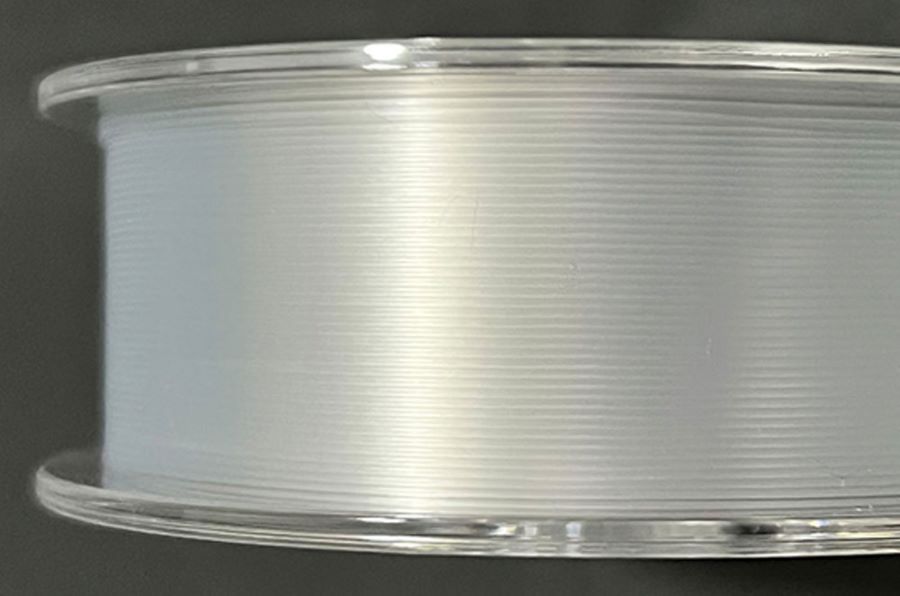
- Rich lineup to support various fishing styles
VEP SHOCK LEADER has 9 items from 3 (12lb.) to 14 (50lb.).
All are 50m parallel winding and easy to use for light saltwater lure fishing in general.
For example, 3-8 (12lb.-30lb.) are suitable for casting games centered on seabass fishing, regardless of shore or boat fishing. 8-10 (30lb.-35lb.) are recommended for light games centered on small migratory fish such as mackerel and yellowtail. 12 (40lb.) and 14 (50lb.) are popular among users who aim for medium-sized migratory fish such as yellowtail amberjack, bonito, and horse mackerel, as well as those who use big baits that have been attracting attention in recent years for trophy seabass.
By the way, the number obtained by multiplying PE1 by 20 is often the suitable pound number for the leader.
Of course, the thickness of the leader you choose may vary slightly depending on the situation and the target fish.
Still, you should prepare several items so that you can respond immediately on the spot.
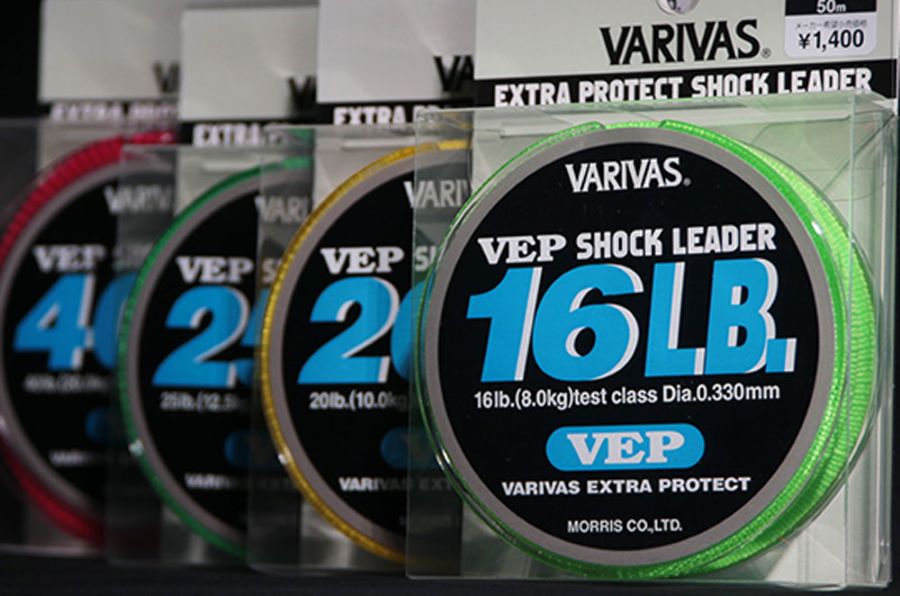
Gallery
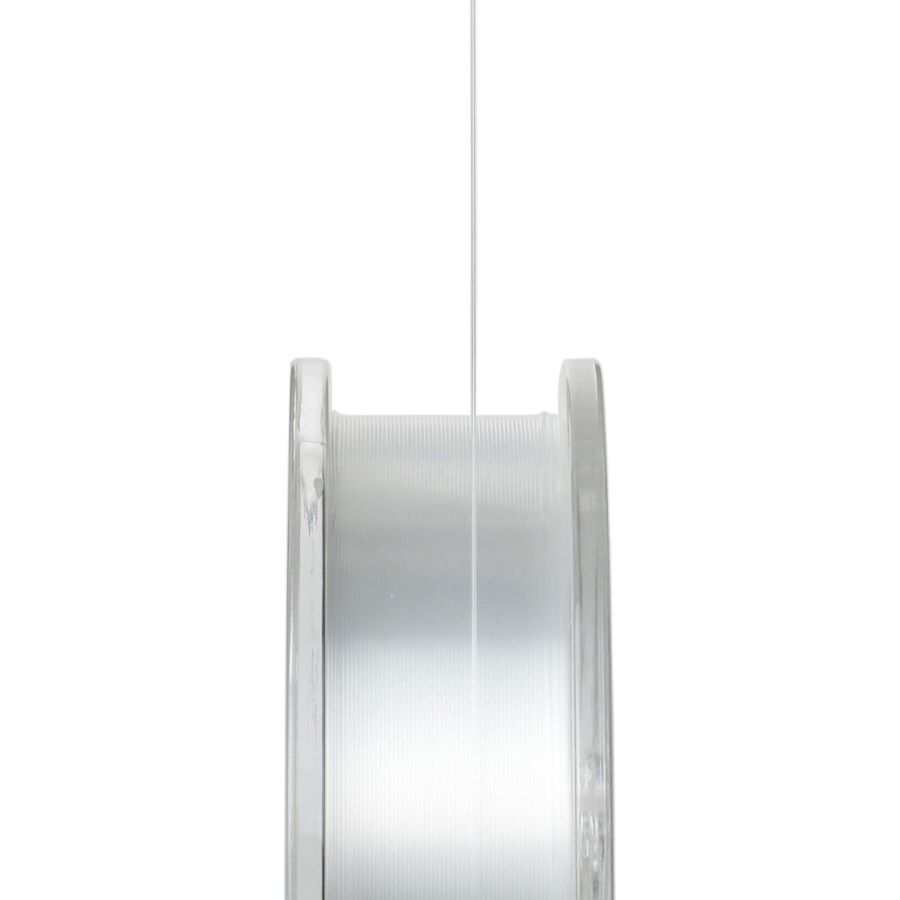
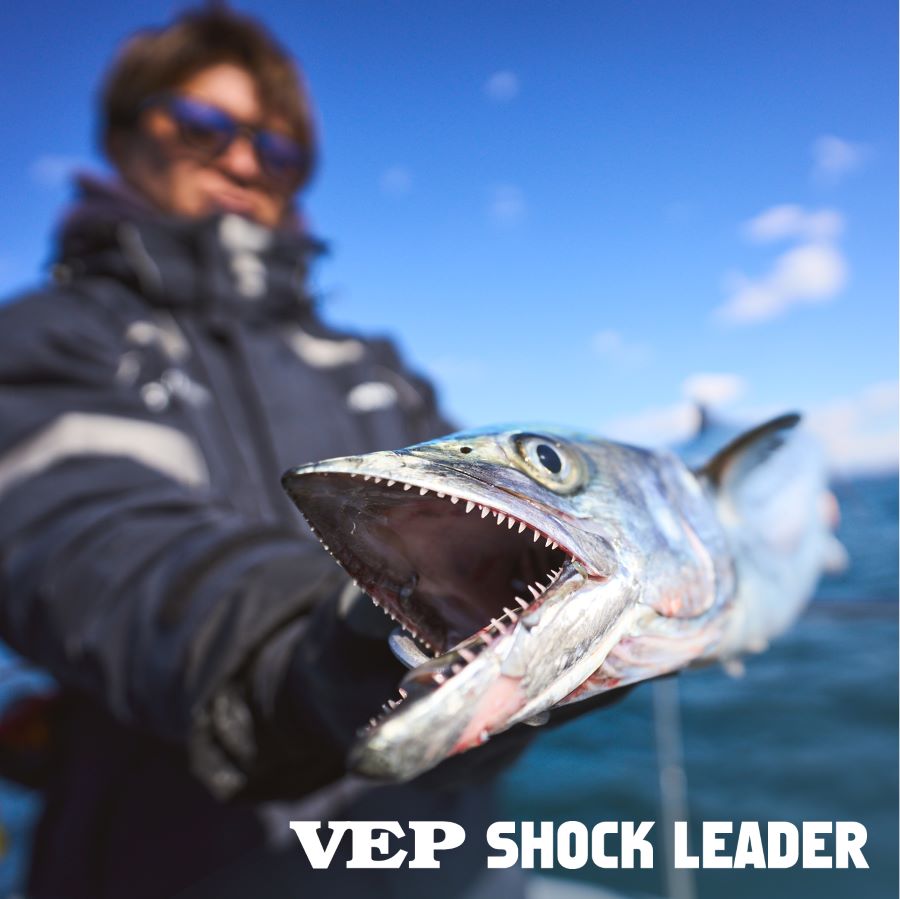
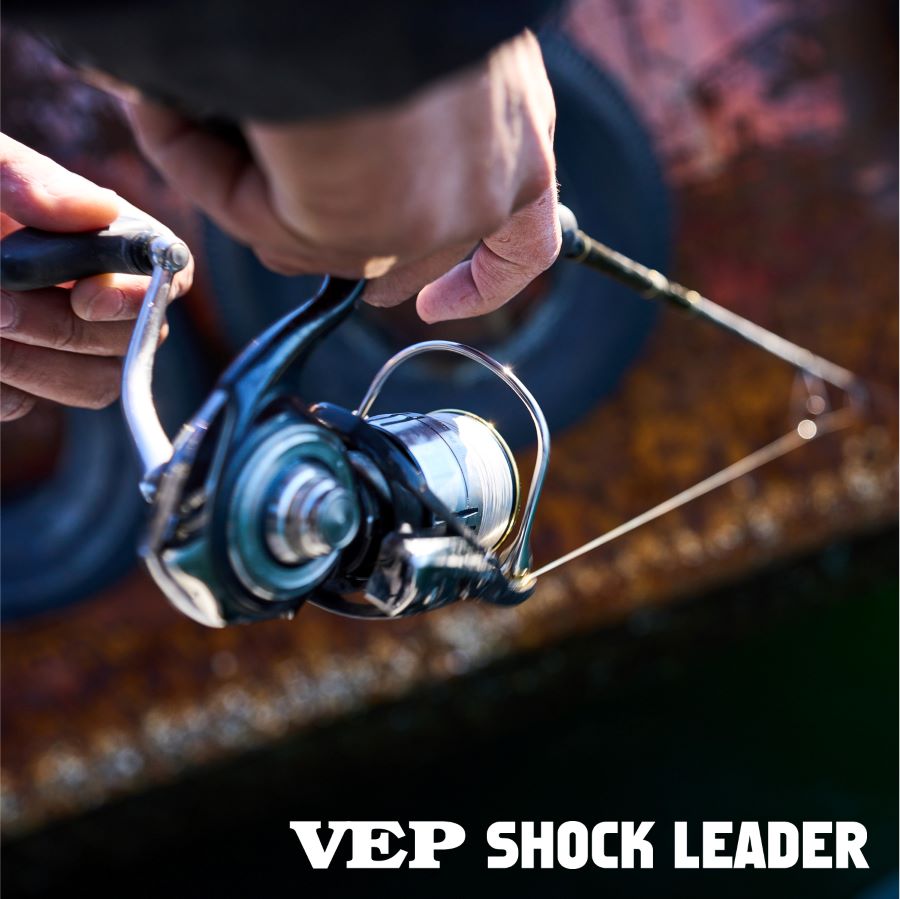

![Photo1: [VARIVAS] VEP SHOCK LEADER [Nylon] VA-12 (1)](https://www.hedgehog-studio.co.jp/phone/data/hedgehog-studio/_/70726f647563742f32303234303230355f3761373034642e6a706700363030000074006669745f686569676874.jpg)